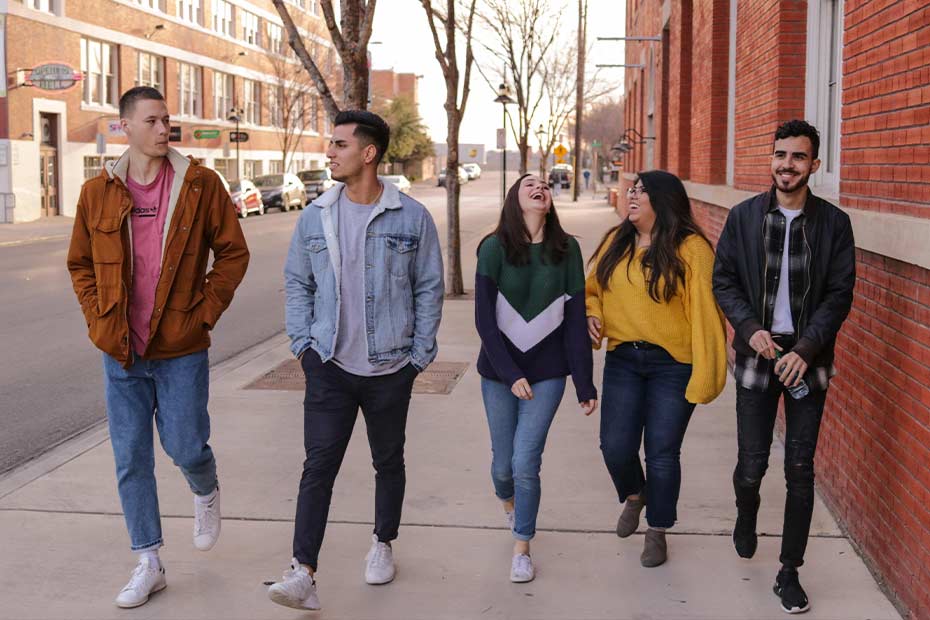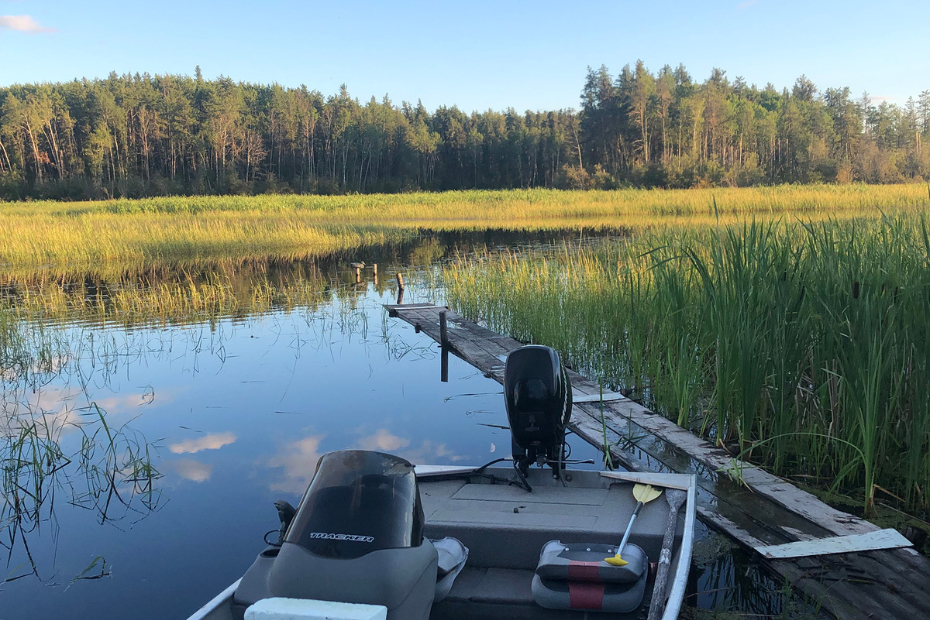Simcoe County, Ontario is a mix of urban and suburban centres. There is also a large rural population. In these areas, young people and their families are facing disproportionate impacts of the pandemic, especially when it comes to accessing mental health services.
New Path is a children’s mental health agency providing free mental health services to children and youth aged zero to eighteen and their families. This includes group counselling, family sessions, walk-in and call-in clinics, family services and in-home support. Their job is to coordinate children’s mental health services in Simcoe County, including the towns of Bradford, Alliston, Collingwood, Barrie and Orillia.
RBC Foundation is supporting New Path as they continue their outreach to young people. “Only 1 in 5 youth get access to the mental health support they need, and it’s even more challenging in rural areas,” says Randy Tredenick RBC Regional Vice-President, Barrie & Muskoka. “What we love about this program is that youth who are struggling and their families get directed to the right care and resources in rural communities. It’s our way of helping youth prepare for their future.”
RBC recently spoke with Elizabeth McKeeman, CEO of New Path, about the needs of youth and their families at this time, the role resilience plays in their ability to cope and the unique challenges facing young people in rural areas.
Q: Simcoe County has both urban and rural communities. How have youth in these areas been coping through the pandemic?
McKeeman: Isolation is huge for all young people, but when you are already in a community that’s isolated — where you can’t hop on a bus or subway to get where you need to go — it’s very hard to manage.
Youth are struggling. They are depressed, having suicidal thoughts, self-harming, angry and hopeless.
Q: In a typical year, how does New Path reach young people in Simcoe County?
McKeeman: We are strongly connected to the schools in the county and a lot of our programs involve staff going into schools to deliver services. We see terrific uptake with this approach. We go to where the kids are, instead of waiting to find out if kids will show up for in-office appointments. It’s very key for us to be in the schools, as youth can tell the guidance counsellor they want to see a counsellor from New Path — they can call the shots.
We also offer walk-in clinics, which are one-time sessions for youth and their families who need support. If a therapist feels they have more complex needs, we can bring them further into the organization for ongoing service.
Q: How have your services shifted since the pandemic began?
McKeeman: Early on, we quickly shifted to a virtual model of service delivery for most clients. That is our preference, but some people feel they need in-person service. We do offer in-person support when it’s needed. Our walk-in clinics have shifted to call-in clinics.
Q: How have virtual services been received?
McKeeman: For the most part, people love it. Our call-in clinics actually allow us to reach more people. When we had walk-ins before the pandemic, our counsellors would, for example, be in Bradford on Mondays, Alliston on Thursdays. With a call-in clinic, you can book with anyone, any day of the week, therefore allowing for better access and quicker service.
Of course, there are times when we wish we could see the whole family in one room, see the non-verbal cues and body language. Sometimes the best thing is to be right there, shoulder-to-shoulder.
Q: How do you address the needs of these youth?
McKeeman: In some areas, Youth Wellness Hubs have been funded by the province to provide a wide range of services to youth, who in our case, were viewed as isolated. Our local hub has done a lot of outreach with kids. We try to get to where youth are, as some won’t even want to come to a hub — they don’t know who else will be there. In smaller communities word gets around and they don’t want anyone to know if they saw a counsellor or nurse.
Q: What are some of the challenges you’ve seen in Midland?
McKeeman: Midland is a very unique community. Not just in terms of its rurality, but in terms of their issues with unemployment and poverty. There is a francophone population, Indigenous communities and a lot of multi-generational families. There’s a wide variety of needs. The residents haven’t felt like they have had their fair share of services.
We track top-presenting problems and, like youth in the rest of the country, they’re dealing with anxiety and depression, communication issues among family members. In some cases, parents are absent so grandparents are parenting children and trying to provide support at home.
We have services that go right to them now, with a walk-in clinic for the Midland community. We also introduced a Brief in Three Program, which is designed for children, youth and families who require greater support than what is provided in our Walk-In/Call-In Clinics. Counselling focuses on developing strategies to help cope with their presenting concerns over three sessions.
Q: How important is resilience in being able to cope with challenges?
McKeeman: Resilience is huge, and there is a saying that children are resilient. Part of resilience, however, is having a supportive network, including mentors and teachers. Certainly, COVID has robbed youth of some of that.
Resilience skills are in all of us, but when they are nurtured, encouraged, taught and modelled, they become so much stronger. Young people need hope, belief and confidence. They need some special person right there coaching and encouraging them in life to help solve problems and manage what life is throwing their way.
Q: Has the stigma around mental health reduced during the pandemic?
McKeeman: There is still stigma attached to mental health, particularly in rural communities. That’s why we try to create good experiences for youth and families who come in, so there is a better chance they will return. We keep reminding people it’s OK to access mental health support, it’s accessible and it’s free. We have seen an exponential uptake in services this year versus last year, so clearly people are reaching out.
It’s more important than ever for young people to find a mental health support network. New Path is helping to ensure youth in communities large and small have access to the help they need.
As part of RBC Future Launch, RBC is committed to enhancing youth mental well-being, offering access to a wide variety of digital resources that can help cope through challenges, build skills in resilience and even help other youth who may be struggling. Please take some time and explore the link above.
More from the Breakdown Down Barriers: Youth Mental Well Being in Canada:
This article is intended as general information only and is not to be relied upon as constituting legal, financial or other professional advice. A professional advisor should be consulted regarding your specific situation. Information presented is believed to be factual and up-to-date but we do not guarantee its accuracy and it should not be regarded as a complete analysis of the subjects discussed. All expressions of opinion reflect the judgment of the authors as of the date of publication and are subject to change. No endorsement of any third parties or their advice, opinions, information, products or services is expressly given or implied by Royal Bank of Canada or any of its affiliates.


































